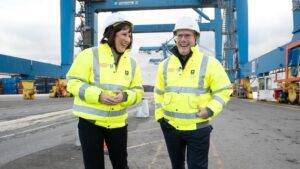Pressure on household finances has eased as shop price inflation slows to 0.2% and petrol costs drop for the second consecutive month
Britain’s next government is set to benefit from reduced pressure on household finances following a slowdown in shop inflation and a drop in fuel prices. However, many families still find costs “too expensive.”
The British Retail Consortium (BRC) reported that annual UK shop price inflation cooled to 0.2% last month, down from 0.6% in May, marking the slowest pace since October 2021. Retailers have reduced prices on key products such as butter and coffee.
In addition, separate figures from the RAC show that petrol and diesel prices fell for the second month in a row in June, offering some relief to families affected by the cost of living crisis. Despite this, the RAC indicated that filling up at the forecourt remains “too expensive” in England, Wales, and Scotland.
According to the RAC’s monthly fuel watch, the average price of petrol in the UK at the end of June was just under 145p a litre, down from 148p at the start of the month. Diesel prices also dropped from nearly 154p to about 150p. However, fuel prices in Northern Ireland were notably lower, with petrol averaging 4.5p a litre cheaper and diesel 8p cheaper than in the rest of the UK.
Simon Williams, the RAC’s head of policy, commented: “While it’s good news prices at the pumps have fallen for the second month in a row, this also leaves a bad taste in the mouth because we know drivers in Great Britain are continuing to get a raw deal as both petrol and diesel are still much more expensive than in Northern Ireland.”
Williams also pointed out that forecourts owned by Shell and BP were among the most expensive, based on Competition and Markets Authority data. He expressed confusion over why the same fuel is sold at vastly different prices by major retailers.
Rishi Sunak has made lower inflation a key point in the Conservatives’ general election campaign, highlighting the official headline rate’s return to the Bank of England’s 2% target in May, down from a peak of 11.1% in October 2022.
However, shadow chancellor Rachel Reeves noted that household finances remain under significant pressure, as average prices are still much higher than before the cost of living crisis began.
The latest BRC snapshot shows that food inflation slowed to 2.5% in June, down from 3.2% in May, marking the 14th consecutive deceleration in annual grocery price growth. Despite this, average prices in UK shops continue to rise, albeit at a slower pace.
BRC chief executive Helen Dickinson stated that retailers have cut prices on some key products, including butter and coffee. Non-food prices are also experiencing deflation as shops offer discounts to boost sales, with particularly good deals on TVs to capitalise on Euros fever.
“Whoever wins Thursday’s election will benefit from the work of retailers to cut their costs and prices, easing the cost of living for millions of households,” Dickinson said.
